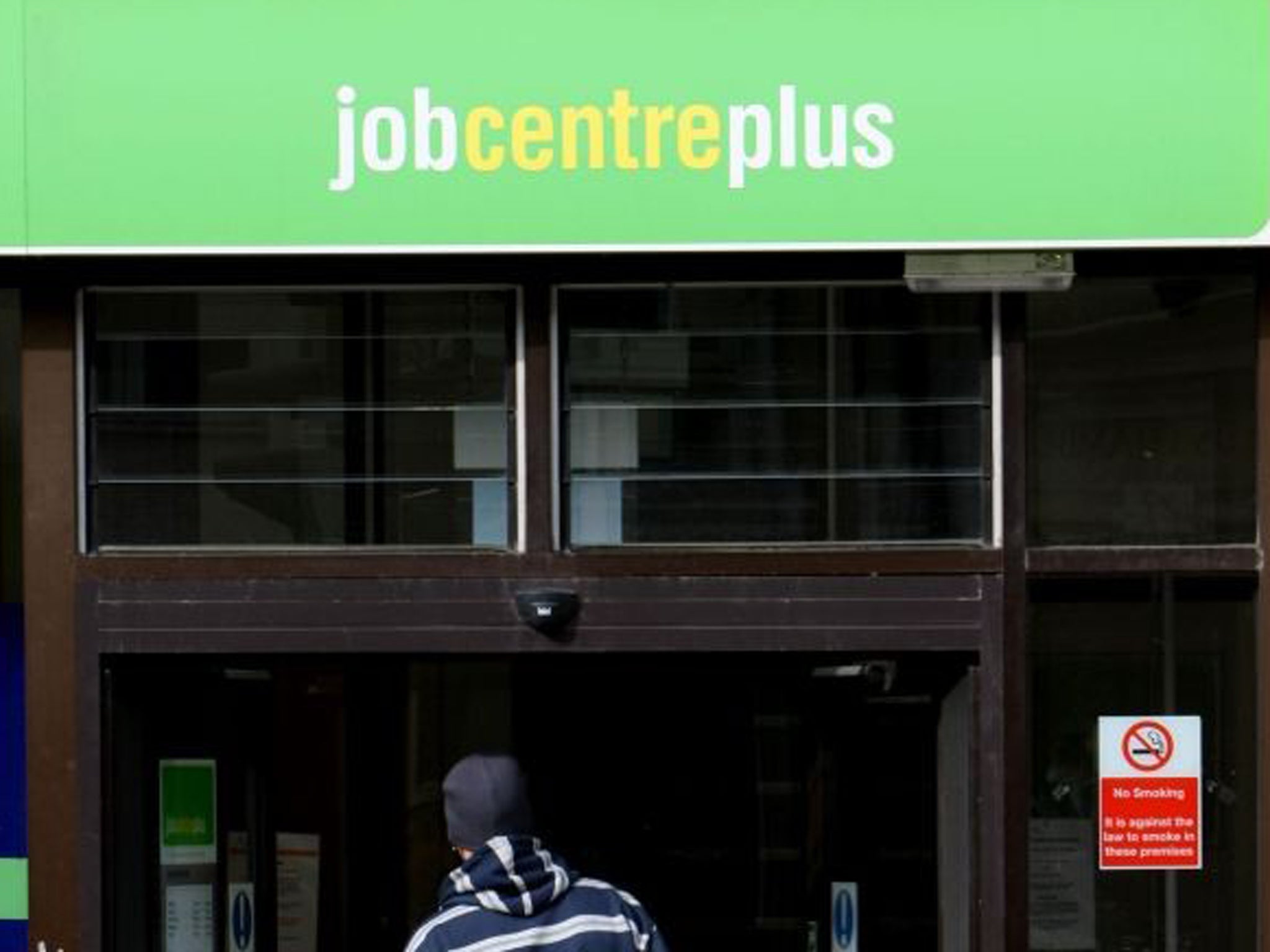Young unemployed afraid they will never find work

Your support helps us to tell the story
From reproductive rights to climate change to Big Tech, The Independent is on the ground when the story is developing. Whether it's investigating the financials of Elon Musk's pro-Trump PAC or producing our latest documentary, 'The A Word', which shines a light on the American women fighting for reproductive rights, we know how important it is to parse out the facts from the messaging.
At such a critical moment in US history, we need reporters on the ground. Your donation allows us to keep sending journalists to speak to both sides of the story.
The Independent is trusted by Americans across the entire political spectrum. And unlike many other quality news outlets, we choose not to lock Americans out of our reporting and analysis with paywalls. We believe quality journalism should be available to everyone, paid for by those who can afford it.
Your support makes all the difference.The young want to work - but huge numbers of them do not believe they ever have a chance of getting a job, according to a new survey.
There is a massive lack of optimism amongst so-called 'neets' - those not in education, employment, or training. Nearly all of those surveyed (88 per cent) want to be studying or in work, but 36 per cent of them do not believe they will ever get a job.
The survey, commissioned by the University and College Union (UCU), spoke to 1,000 neets between the ages of 16 and 24. More than half had been in this position for a year or more, while a quarter had been out of work or education for more than three years.
The UCU found that neets were increasingly depressed by their employment situation, with more than half (54 per cent) saying that they believe their potential is being wasted. Just 46 per cent said that they felt in control of how their life would turn out. More worryingly still, two in five admitted that they did not feel as if they were part of society.
The survey, which comes a day before the latest unemployment figures are due to be published, also reveals the impact that being out of work, education, and training has on young people, with a third (33 per cent) reporting that they have suffered depression, 37 per cent saying that they rarely left the house and 39 per cent saying they have felt stressed or anxious.
UCU president Simon Renton said: "This report lays bare the deep personal impact that sustained unemployment has on young people. It is truly heartbreaking to see so many people who want to contribute more to society but are left feeling their outlook is desperate and hopeless.
"The individual human tragedy is only part of the story as young people outside education or work cost the country millions of pounds every year. We need to give our young people a commitment of proper guidance and stable, properly rewarded jobs, or educational opportunities."
"This will mean central and local government, employers, schools, colleges and universities working together. It will cost money, but the alternative is to consign hundreds of thousands of young people to the scrapheap and leave society to pick up the both the social and economic bills caused by their inactivity."
The latest official statistics show that around one in six of all young people aged 16 to 24 - 909,000 (15 per cent) in total - were neet in the first quarter of this year.
Toni Pearce, president of the National Union of Students (NUS), said: "Young people are desperate to work and to get the training they need to excel but it is clear that they are being badly let down.
"Long periods out of work or education not only have a devastating impact on individuals both in terms of their immediate health and well-being but have knock-on effects for the rest of their lives."
A government spokesperson said: "To tackle the problem the Government is funding a place in education or training for every 16- and 17-year-old who wants one, raising the participation age to 18, and investing in quality traineeships and apprenticeships."
She added there is also a £180 million bursary fund to help 16 to 19-year-olds stay in education.
Join our commenting forum
Join thought-provoking conversations, follow other Independent readers and see their replies
Comments